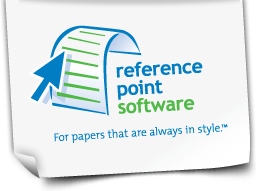What Is a Digital Object Identifier?
The digital object identifier (DOI) is the new standard for locating and citing online electronic resources and publications. Using the technological advances of the internet and computers, the DOI helps you to find and connect with the online version of a resource, even if the original publisher has changed its destination URL.
The digital object identifier system is a framework for the identification of objects of content in the digital world. This The DOI number system is used to help with providing up-to-date information about these items as well as where they can be located or accessed on the internet. This system also helps with managing content, databases and metadata, connecting users with digital content suppliers, enabling and streamlining e-commerce, and facilitating efficient data management.
DOI names can be used for all types of data management, commercial as well as non-commercial. The information about a digital item can certainly change and evolve over time, including its location, but the DOI name assigned to the object will not change. The DOI System is considered an ISO International Standard. As of this writing, over 55 million DOI names and numbers have been assigned in the United States, Europe and Australia.
The actual digital object identifier is a unique string of alphanumeric characters that is assigned by an agency called the International DOI Foundation. The aim of the DOI process and system is to accurately identify content and provide a consistent, up-to-date link and documented access to its current location on the Internet. The publisher will assign a DOI as soon as an article is published and available on the internet.
At this time, all DOI codes begin with the digits “10” followed by a “prefix” portion and a “suffix” portion. The prefix is a set of four (or more) unique digits which are specifically assigned to and associated with certain organizations. The suffix portion of the digital object identifier code is less defined and allows the publisher flexibility in terms of specific standards.
Using this the DOI system makes managing intellectual property rights within a networked or connected environment far easier and more efficient than ever before. It has made the process more convenient as well, allowing for more efficient construction of automated data sharing and other helpful services.
When writing a paper if DOI codes are available for a reference, it is recommended you include them for both your print and digital sources. If a DOI is applicable, it is usually located on the very first page of the item near the copyright information. The number may also be visible on the article’s website landing page.
To find a digital object identifier number or to see if one is available for your source material, one of the easiest ways to do is to simply do a Google search for it. To confirm your DOI’s source, using a DOI resolver such as CrossRef.org can be useful.
While most books and publications do not have DOI’s at this time, an increasing number are being added to the database each day. In the long run, the DOI system should prove very useful in organizing the ever-expanding proliferation of online media.
When citing digital object identifiers in your papers, you need to make sure that you adhere to the latest APA and MLA formatting styles. If you are unsure about how to cite DOIs, you have a couple of options. First, you can look-up the latest APA and MLA formatting styles guides and apply their guidelines to all areas of your paper. Your second option, and probably more efficient method to make sure you donΓÇÖt lose points over formatting errors, is to use formatting software that will handle this for you with just a few simple clicks.
David Plaut is the founder of Reference Point Software (RPS). RPS offers a complete suite of easy-to-use formatting template products featuring MLA and APA style templates, freeing up time to focus on substance while ensuring formatting accuracy. For more information, log onto http://www.referencepointsoftware.com/ or write to:
info @ referencepointsoftware.com
Reference Point Software is not associated with, endorsed by, or affiliated with the American Psychological Association (APA) or with the Modern Language Association (MLA).
